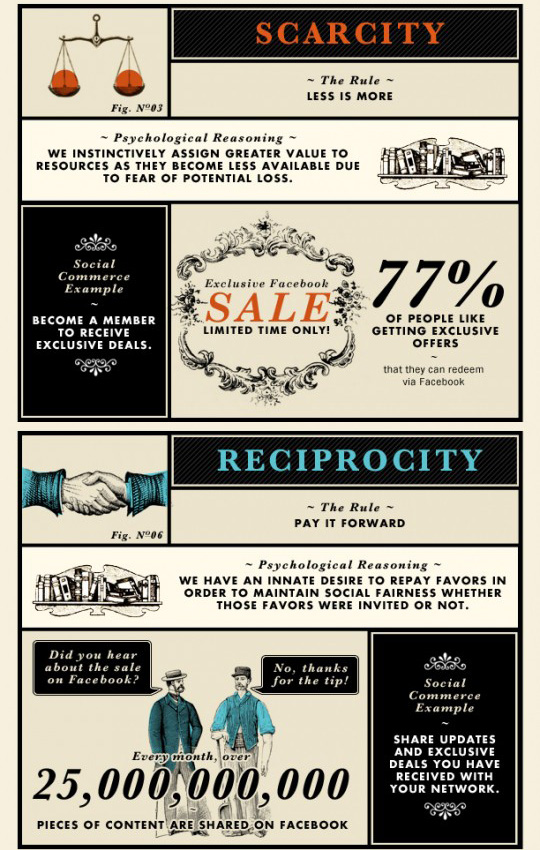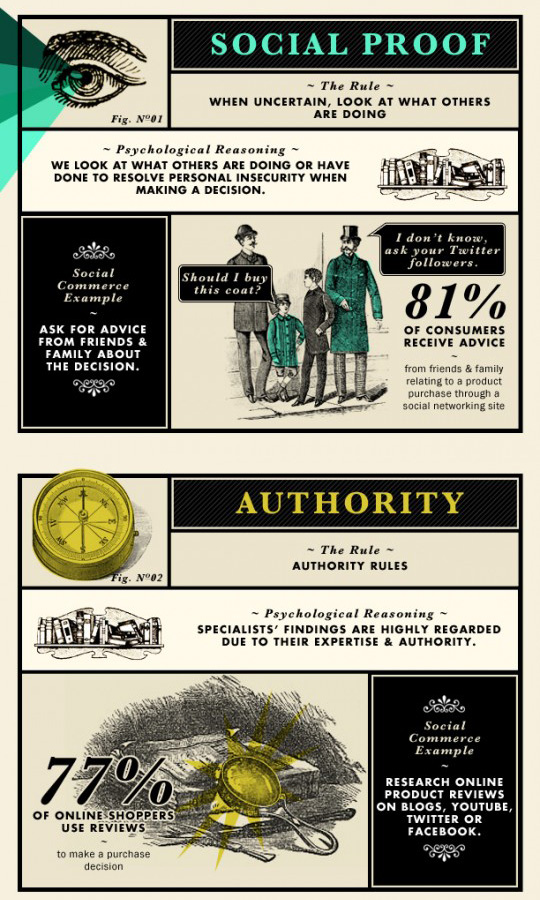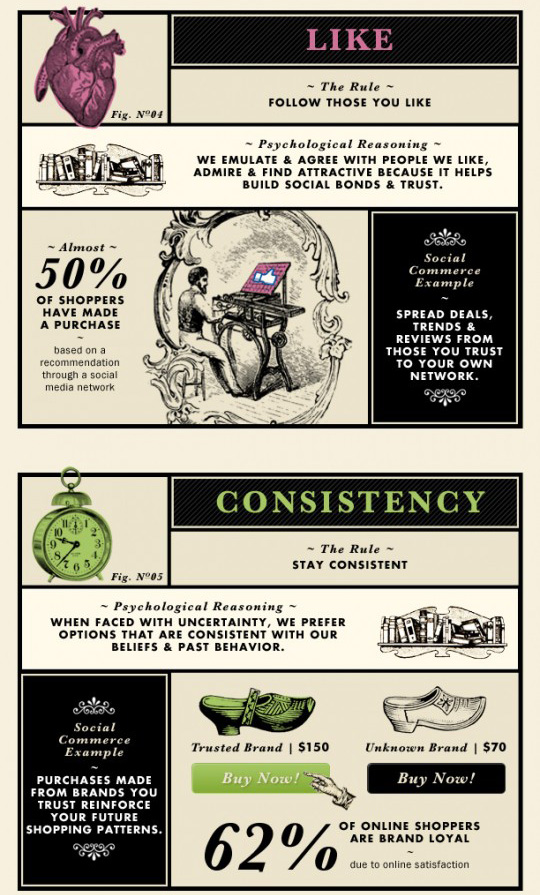When thinking about e-marketing or e-commerce, one must consider what consumer behaviour is like online as opposed to assuming behaviour stays as it is in the offline world. While the differences may not be stark, the online setting changes the dynamics of the game. The following infographic explains how and why people shop online:
 Infographic by TabJuice
Infographic by TabJuice
Consumers’ habits to look unto others for advice is a big reason why brands need to foster a community online. Brand ambassadors, advocates and an active community all help encourage others to take interest in the brand.
Word of mouth is becoming increasing important and this is only amplified on the WWW. This “under-the-radar” kind of marketing allows brands to cut through the clutter in a credible manner because they get to utilize networks of friends and family. You may not want to read some company paid blogger’s views on soft drinks, but it’s hard to turn away if your best friend recommends a particular brand.
Bloggers are an interesting twist. While there is often ambiguity as to whether or not a blogger has been sponsored (paid) to advertise a certain brand, many bloggers provide that perfect balance in the sense that we look up to them like a celebrity but feel as if they are our friend. Many take bloggers as an upward social comparison. That’s key because these are people we trust and feel have the knowledge or expertise to make right decisions.
Key Takeaways:
When creating an online marketing plan, remember that:
- Consumers value the opinion of others, especially those they know and those with authority.
- People are wired to share (so use tools that enable users to repost your content easily – e.g. Facebook “share”, Pinterest “Pin it”, Tumblr “Reblog”)
- People have a tendency to group with and trust those that share similar interest


